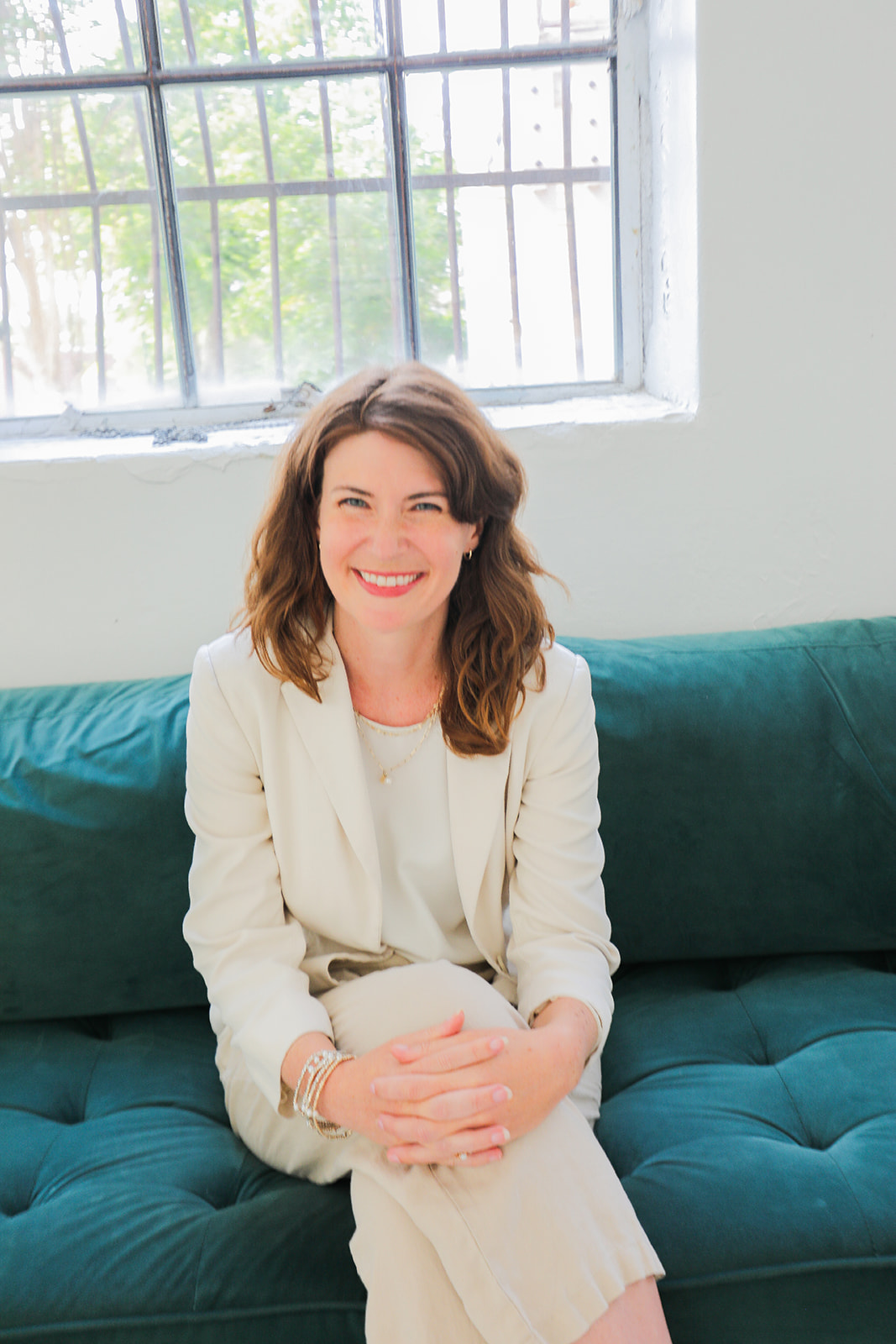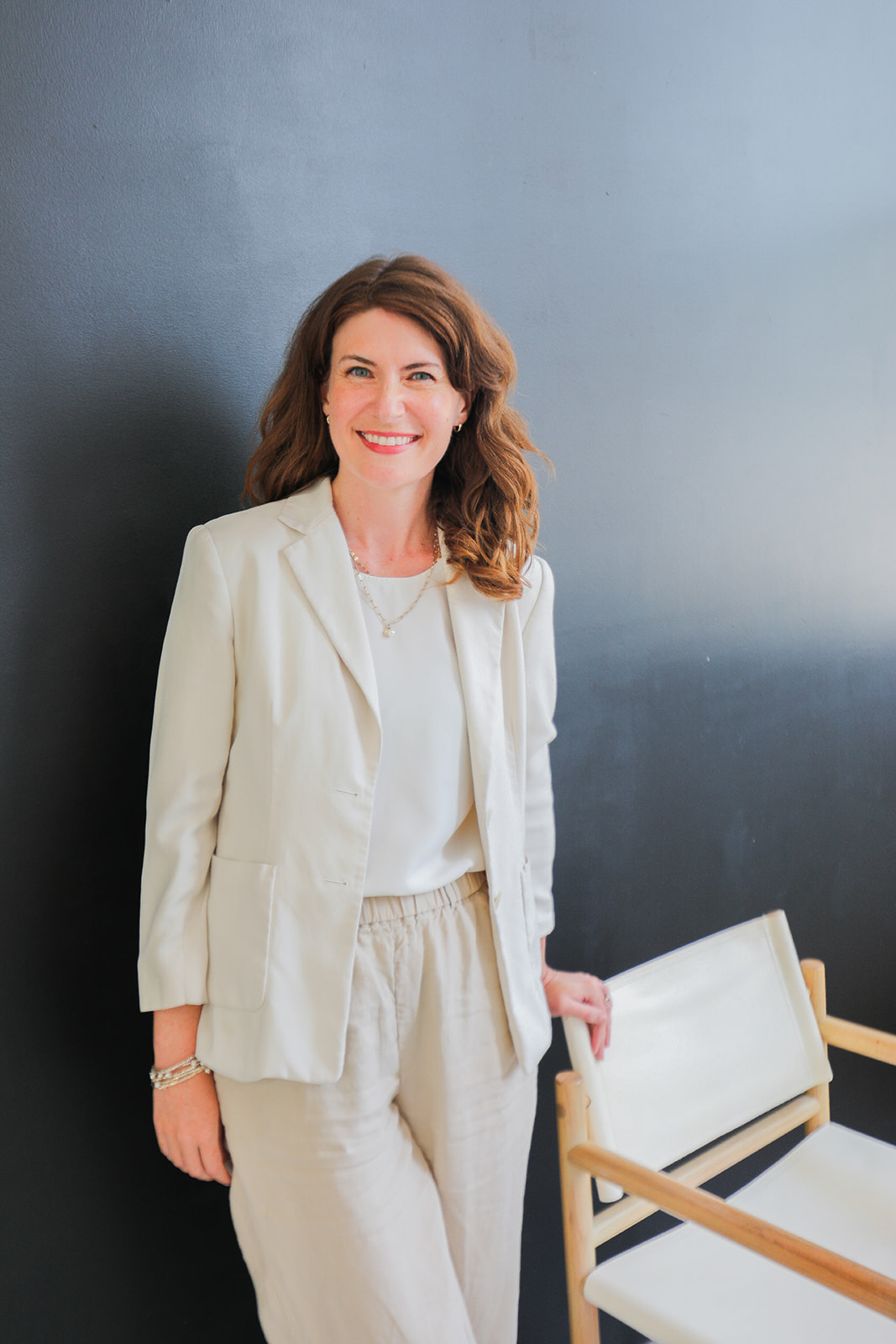

Today we’d like to introduce you to Rebecca Gorman.
Rebecca, we appreciate you taking the time to share your story with us today. Where does your story begin?
I started seeing a therapist years ago to address my own mental health concerns related to persistent depression and anxiety. It was difficult and humbling for me to walk into that office because I considered myself a healthy, well-adjusted person. In addition, my faith was essential to me (I’d spent years in full-time ministry and had a master’s degree in theological studies), and I felt like a failure for not being able to overcome my depression and anxiety through prayer.
At the beginning of my journey, I’d hoped to go for just a few weeks. As the root causes of my depression and anxiety began to unravel, however, it became clear that if I really wanted to achieve the goals I had for my life, I would need to stay in therapy longer. Again, this was a difficult realization, and it required a lot of trust that God would provide for me financially and sustain me through revisiting difficult truths about my life from which I’d disconnected.
Therapy became a sacred space—a meeting point between God, myself, and another human being who was committed to truth, love, and deep attunement to me. Far from being ashamed and feeling like a failure, I saw God’s grace and love in allowing me to go through that process, leading me to the right person to facilitate it, and giving me the courage to show up week after week.
In one of my early sessions, when I’d been discussing where I wanted to go in life, my therapist said, “Sounds like you want to be a therapist.” Later, when the pandemic hit, I was laid off from my job, but I felt peace that God was leading me somewhere different. A month or two later, I received an email from The King’s University that said the deadline to apply for their Master of Marriage and Family Therapy program was that Friday. I didn’t remember ever signing up for an interest list—yet I found myself applying as though I’d planned it all along. I began the master’s degree as a step of faith, not knowing how it would work out financially. Then, 8 months into unemployment and 3 months into my master’s degree program, I began working at an innovative Bible translation nonprofit called Seed Company, where I remained as I prepared for my next career.
One of my very first classes in graduate school was Career Counseling, and our assignments included doing career counseling on ourselves. This was one of the things I most appreciated about The King’s University—that they encouraged us to continually do our own work and to apply everything we were learning to ourselves before applying it to our clients. In one paper, I noted that a great career transition might be to do my practicum internship at a Bible translation nonprofit. Sure enough, when that time came 3 years later, I joined Wycliffe Bible Translators, serving families in Bible translation through their counseling department. Then, in January of 2025, I stepped out of the world of Bible translation to begin my own private practice, under the supervision of Lynn Strom (who had been my supervisor at Wycliffe) and Mark Cagle (a therapist in Dallas who specializes in couples therapy). I named my therapy practice Wholly Redefined, because I work with clients to redefine their relationships with God, others, and themselves.
My therapist would often tell me, “This work isn’t for everyone. It will cost you everything. It is the hardest work you will ever do; it is also the most rewarding work you will ever do. And I have never known anyone to regret it.” Today, when my clients are going through their deepest valleys, I pass along these words that sustained me in my own dark times.
Alright, so let’s dig a little deeper into the story – has it been an easy path overall and if not, what were the challenges you’ve had to overcome?
At the end of December and beginning of January, right when I was transitioning out of the Bible translation space and starting my own business, I began experiencing pain in my leg after a 3-hour flight. A few days later, I had a frightening episode in which I woke up with dizziness and nausea that had me unable to get up off the floor. After more than a week of doctors’ visits, it was determined that I had a blood clot in my leg, part of which had moved to my brain and caused a stroke. I definitely hadn’t expected to go through something like this in my 30s, and I am so incredibly grateful that there was no permanent brain damage. Needless to say, that was definitely a setback in my plans to hit the ground running with launching my business.
Another struggle along the way has been the fact that the world of mental health is in flux. How do practitioners actually get started? Who decides who is qualified to see which kinds of clients? How do practitioners make the business model work for them while being financially accessible to clients? It was only as recently as 2022 that Licensed Professional Counselor Associates like me (“Associate” meaning that we are still under supervision for our first 3,000 hours of practice) could have our own businesses and bill clients directly for our services. Building my own business wouldn’t have been possible just a few years ago. Yet when I explored the possibility of working for someone else, I often found requirements to see a high number of clients per week or to work long or late hours. Therapy is difficult work that I take very seriously, and I don’t believe I can serve clients well if I’m stressed out, overworked, and/or underpaid. Any lack of support for the clinicians inevitably trickles down to the clients.
My personal belief is that every therapist should be in their own therapy and that I can’t take clients deeper than I’ve been in my own healing work. I was bringing six years of my own experience in therapy, two master’s degrees, certifications in yoga, somatics, and Ayurveda, trainings in trauma-informed therapy and Gottman Method couples therapy, and more than a decade of real-world career experience in both ministry and the business world to the table, and I didn’t want to get into a situation where I would be undervalued and possibly burned out in just a few years. This work is too valuable and too needed. There are a lot of conversations taking place right now about how to make mental health more accessible and affordable for clients while also ensuring that therapists are compensated fairly. The compensation, fair hours, and reasonable client loads are nonnegotiables for me, both for my sake and ultimately for the benefit of my clients.
Thanks for sharing that. So, maybe next you can tell us a bit more about your business?
I help people redefine relationships with God, others, and themselves. Relationships are ultimately systems, and I view all mental and emotional distress within a constellation of the systems at play. What’s keeping this couple stuck? What’s keeping this family in a homeostasis that doesn’t work for them? What’s keeping this person in a shame spiral, convinced that they can never do enough to make God happy, and where does this appear in their other relationships? It is my belief that all problems, whether psychological, emotional, spiritual, or physical, come from a sense of separation—from God, others, and self. I often see similar patterns of dysfunction and disconnection at play, whether the struggle is with one’s relationship with self, others, or with their Higher Power. Reconnection is the path to healing.
I believe each client is the expert on themselves. Everyone has their own goals for therapy, with their own journey and timeline. Any tools I use exist to serve clients, not the other way around. So I won’t push one approach on a client, trying to fit a square peg in a round hole. I’m a lifelong learner, continually adding tools to my toolbox, and I start with where the client is in their journey and meet them there. The most important step is always the next one. What does that client need to be able to take the NEXT step in their journey, even if right now they are unable to see the light at the end of the tunnel? Then I look at my toolbox and pull out what will serve them best.
I don’t believe my clients are broken, even if they may sometimes feel that way. The ways we think and behave developed for very good reasons. Maybe they served a function in our family of origin but are destroying our marriage now. Maybe they developed as coping mechanisms for trauma that they were too young to handle at the time. I believe the ways we think and behave, and the results we’re seeing in our lives, make perfect sense. Even the most severe mental illness is not a sign of our brokenness but of our brilliance in trying to adapt to a punishing system that was designed to put us in a constant lose-lose situation. Part of therapy is discovering why what we think, feel, and do once made sense, how these ways of being developed, and then learning how to change our roles in systems to design the lives we want.
Tools in my toolbox include parts work (informed by Internal Family Systems), Bowen family systems theory, attachment theory, transactional analysis (including ego states, the Drama Triangle, games, and life scripts), Relational Life Therapy, Gottman Method, and (beginning in early November) Brainspotting. In groups, I also teach yoga and mindful movement with a therapeutic, trauma-informed lens that incorporates mind, body, and spirit.
Is there anyone you’d like to thank or give credit to?
The first person I have to thank is my own therapist, Martha Rose at DFW Counseling and Psychological Services. Without her support on my journey, I would not be the therapist I am today. The ripple effects of her influence in the community and the world are huge, even though they are often unseen (the most rewarding kind of impact, in my opinion). The second person I have to thank is my husband. Without his support and faithfulness, I could not have launched my own business. He was there to encourage and challenge me, helping me with everything from business planning to the wording on my website. Even when we first met, all the way back then he encouraged and supported my vision and calling.
In addition, my supervisors Lynn Strom and Mark Cagle have been huge supporters. Lynn has given me incredible mentorship and spiritual support, and Mark has helped with business, Google Ads, and supporting couples on their journeys. In addition, meeting other LPC and LMFT Associates who are running their own businesses has been a huge encouragement. Two who stand out are Amanda Averbeck (Authentically Rooted Counseling) and Natasha Faucher (fully licensed now, but who started Empower Counseling back when she was an associate-level clinician). They have been wonderful to bounce ideas off of, share networking opportunities, and support one another through the highs and lows of starting and running a business. I also want to give a shout-out to Pastor Brandon Cole at Gallery Church for the beautiful office space I’m renting and to Dan Graham at Homestead Hope for letting me rent office space at that location as well. Dan has a lot of wisdom that I’ve learned from, having run his own therapy practice for years.
Contact Info:
- Website: https://whollyredefined.com
- Facebook: https://www.facebook.com/wholly.redefined.pllc
- LinkedIn: https://www.linkedin.com/in/rebecca-j-gorman/
- Youtube: https://www.youtube.com/@WhollyRedefined





Image Credits
Sarah Burgess










